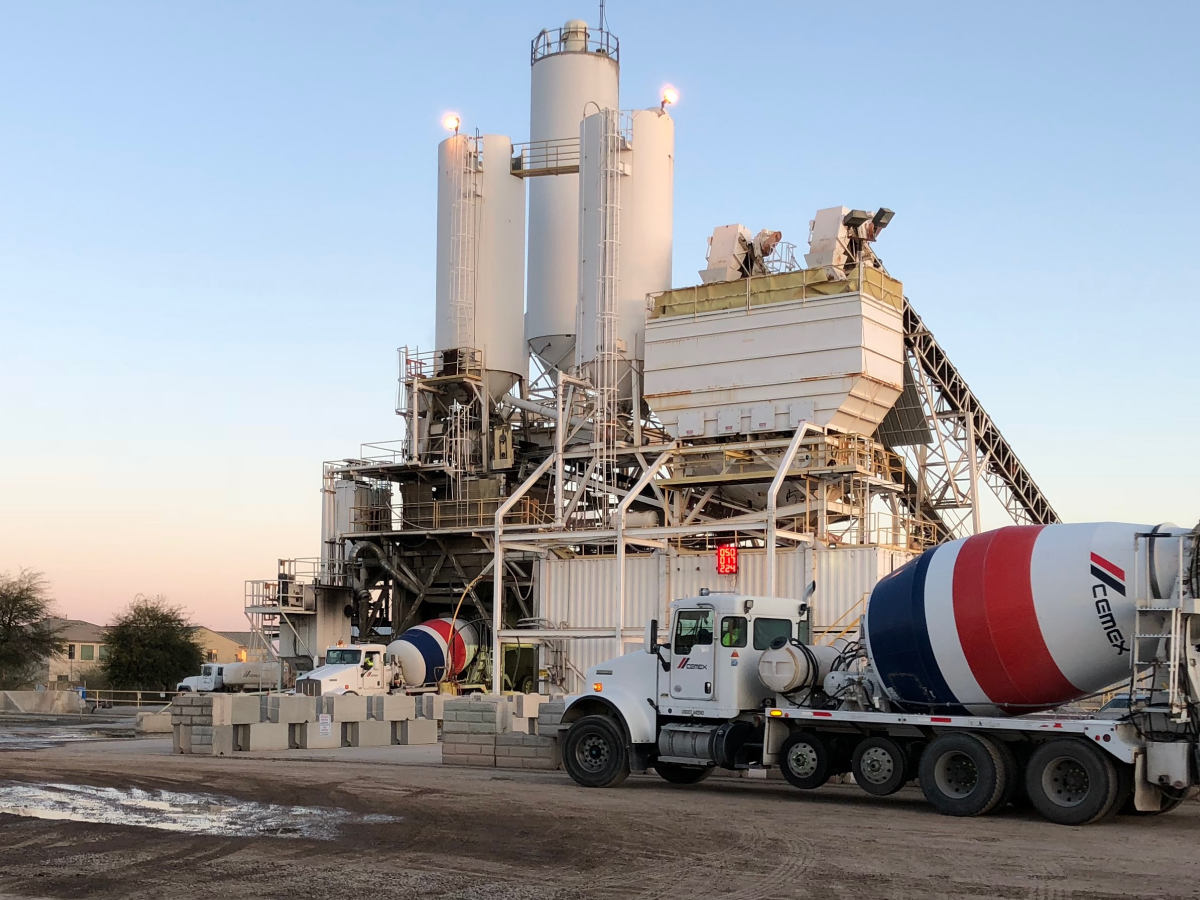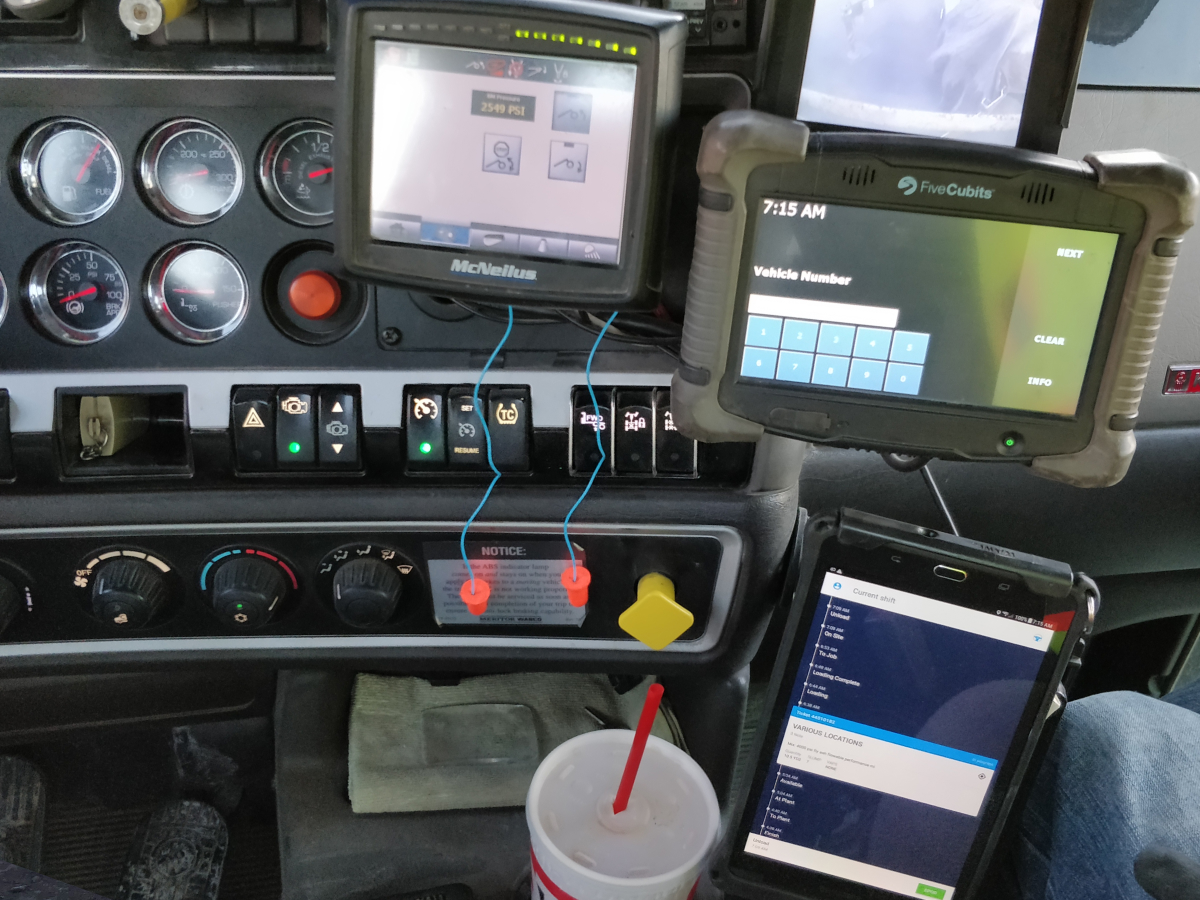CEMEX Driver
A follow-up to the Track app, designed as a part of a digital transformation. Driver aims to simplify and automate status tracking for fleet delivery drivers and consolidate processes for global operations.
I led the 0–1 design by working with users and the business to build on the systems and patterns established in Track to create its business-side complement.
Contributions
Product Design, Prototyping, User Testing, Design Thinking, Leadership, Accessibility
Format
Native iOS, iPhone, iPad

A partnership that brought together IBM Enterprise Design Studios, their customers, and Apple’s Design & Engineering teams to create new enterprise apps for Apple’s platforms.
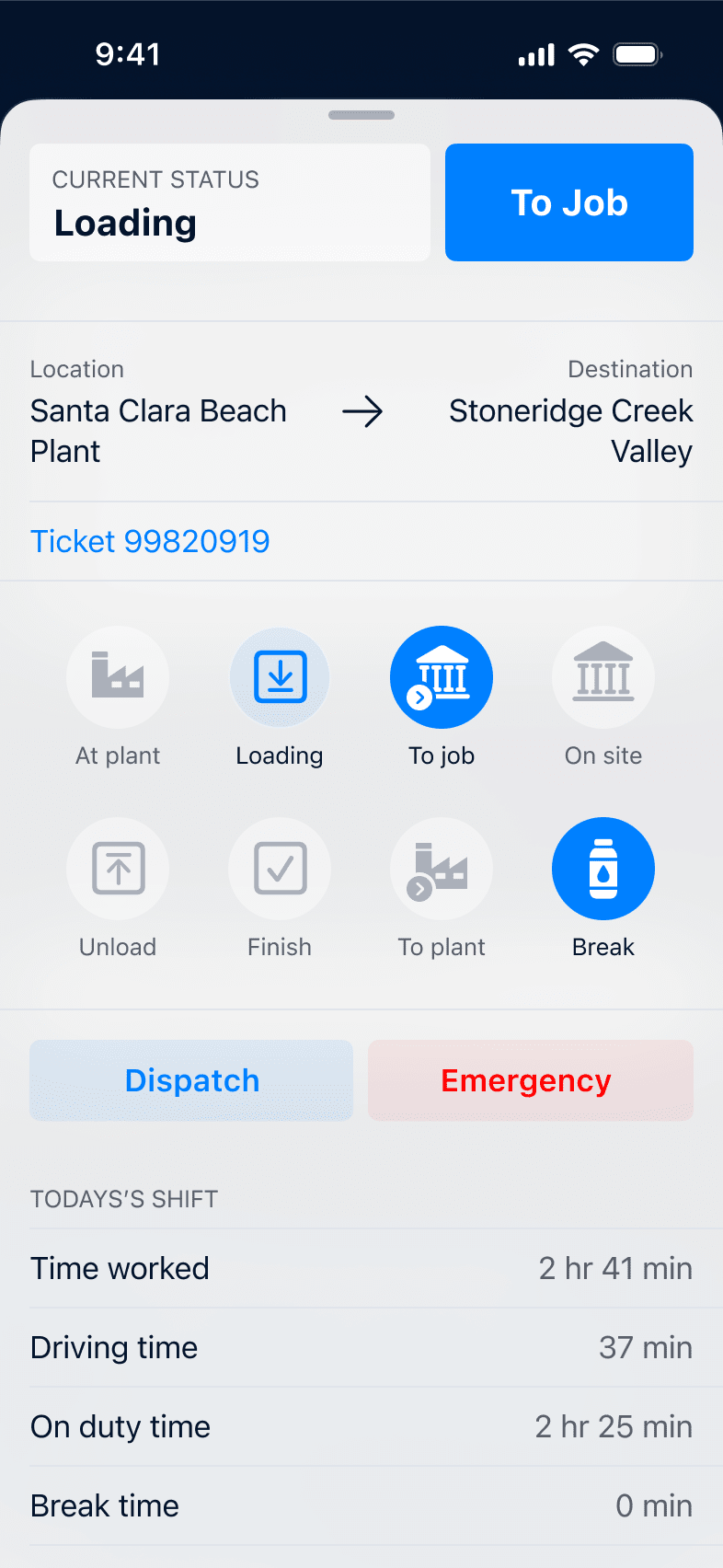
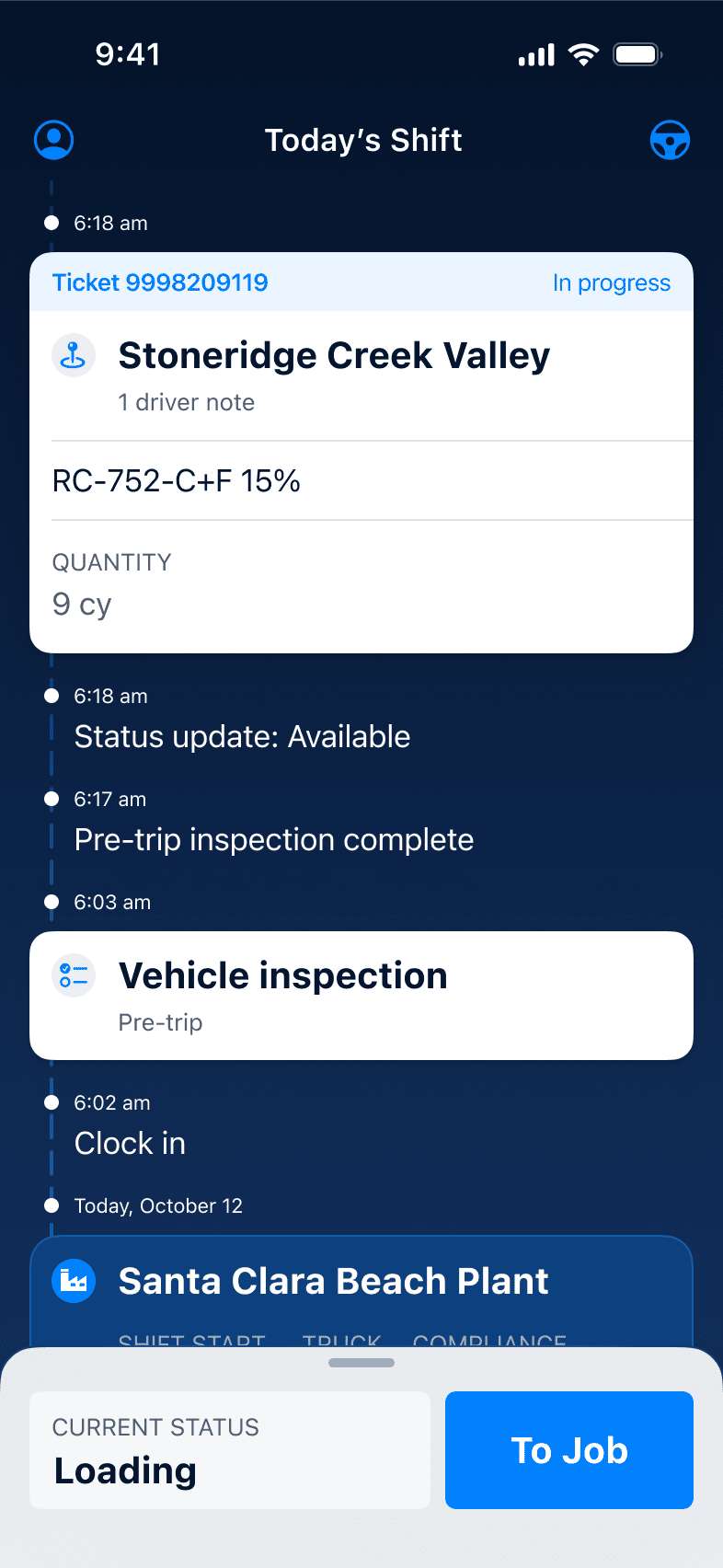
Quick start, high momentum
Building off the foundational work in the Track app, the design moved quickly through the discovery and definition phases. The process started with a workshop in Cupertino with new users, but familiar business stakeholders.
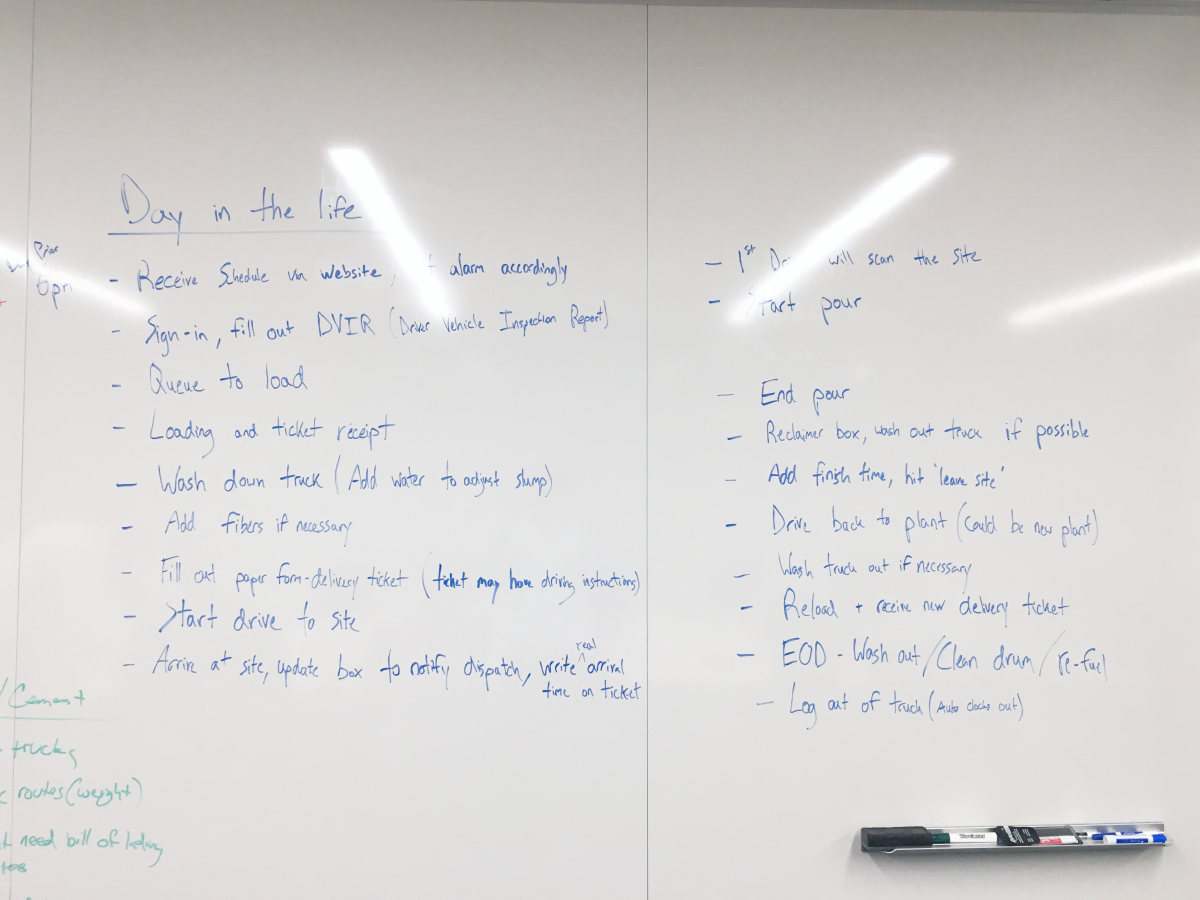
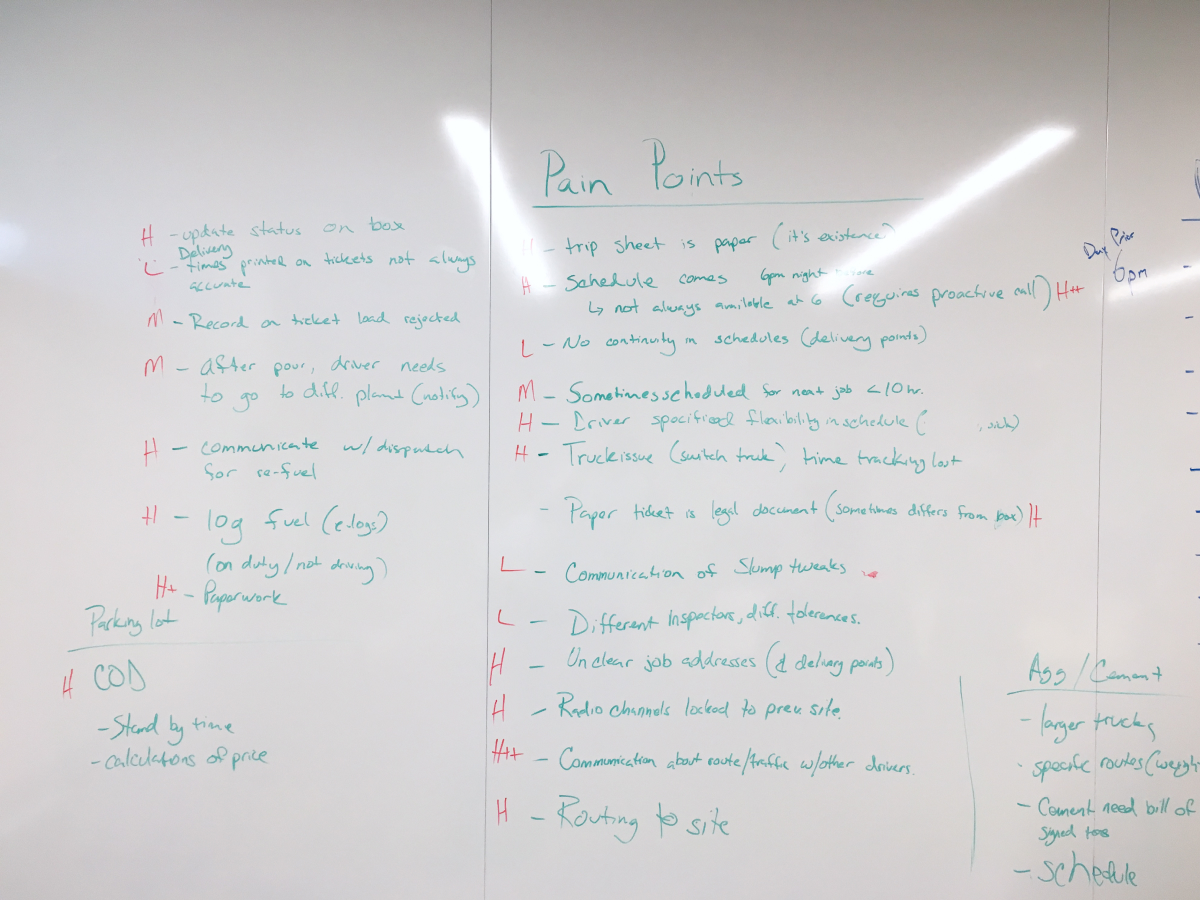
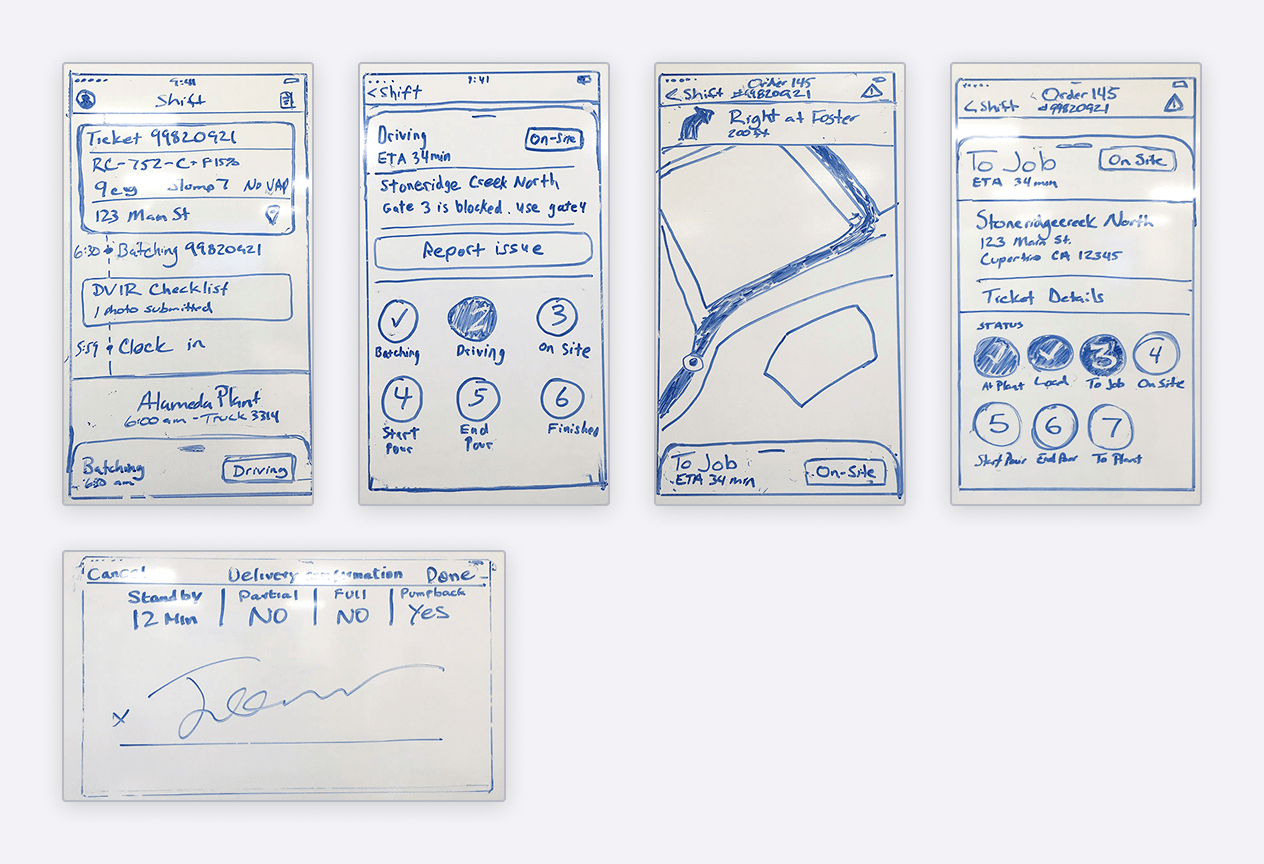

Primary use cases
The quick start and tight scope allowed me to move quickly into more refined designs. The app focused on a few areas: communicating tasks’ status, improving routine safety procedures, and reporting on shift details for compliance and payroll.
The timeline provides a record of activity and a way to access more detail when needed.
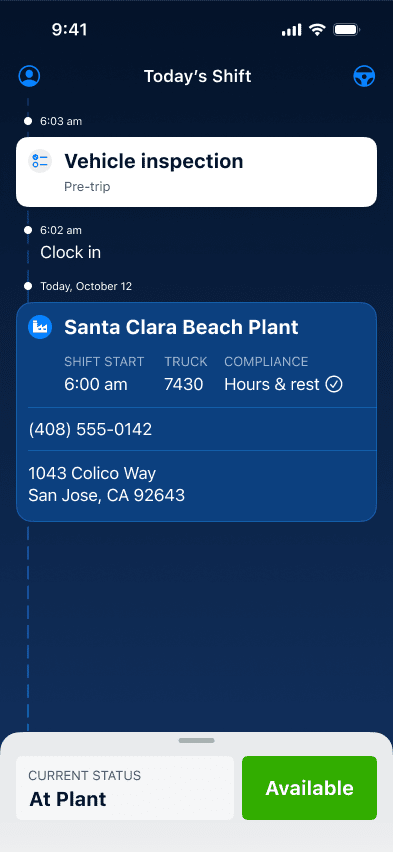
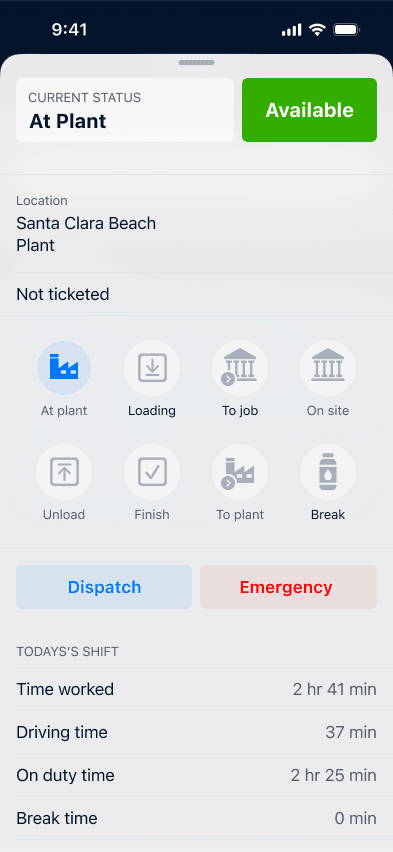
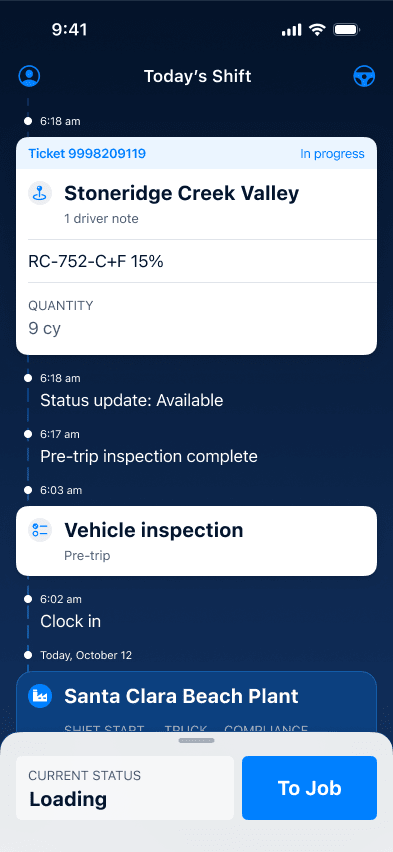
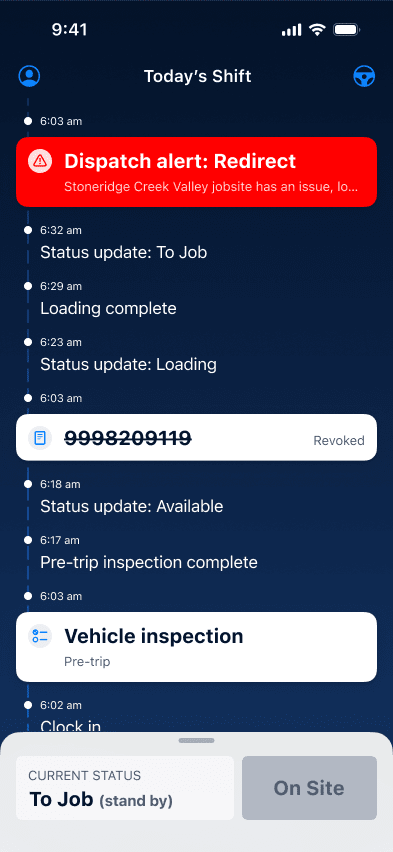
Improved safety and reduced paperwork
Delivering to large dynamic jobsites can be dangerous. Drivers use radios to share details about unmapped areas, access points, obstructions, etc. That information easily gets lost in shift turnover. Jobsite notes gave drivers a way to capture the most essential details better.
Outside of deliveries, drivers also have many administrative tasks: pre- and post-trip vehicle inspections, delivery tickets, driver and vehicle logs, and shift tracking. The app streamlined the previously manual work; increasing compliance and providing more transparency to details that impact their paycheck.
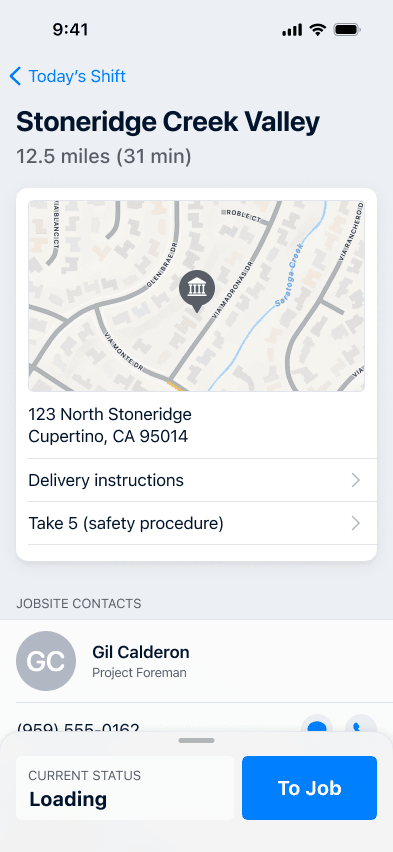
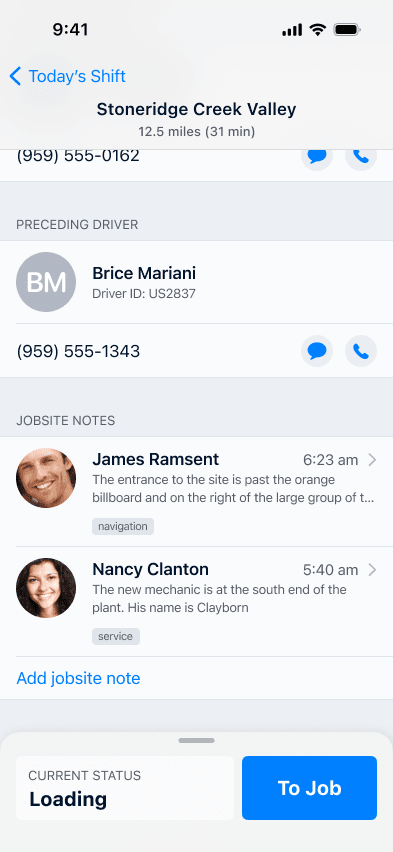
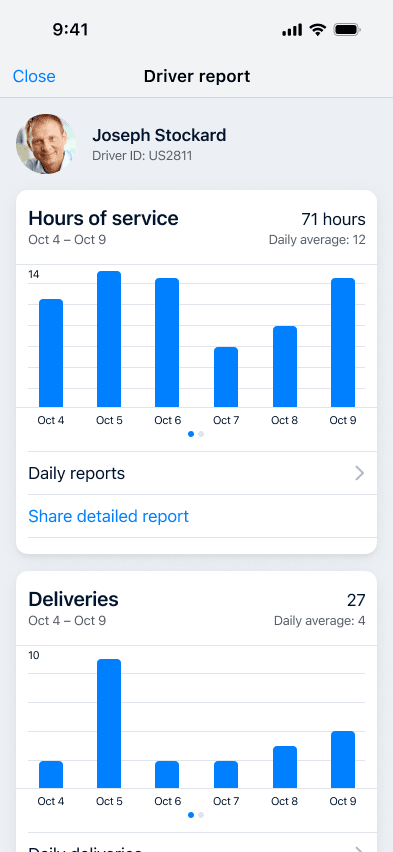
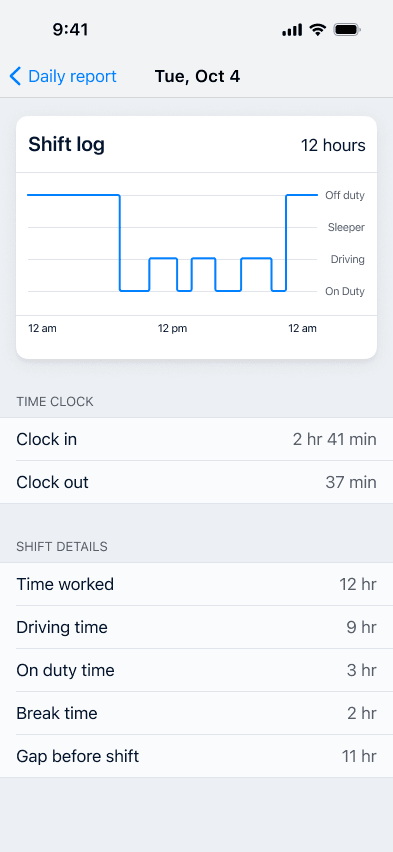
Field testing and driver feedback
I visited several batch plants to test early builds, observe drivers during deliveries, and collect feedback and suggestions directly. Early feedback around status tracking and the more automated approach (even when geofences were not working perfectly) was positive. An unexpected insight was drivers saw the safety features as a benefit deserving of more prominence and not just an admin requirement.
